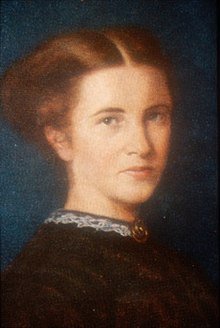Elizabeth Garrett Anderson was the first Englishwoman to become a physician and a surgeon. She also has made significant contributions to the field of medicine and women's rights.
early life:
Elizabeth Garrett was born on June 9th, 1836 in Whitechapel, London. Her parents always encouraged her and her sisters to pursue education, and she was taught by a governess for the majority of her childhood. Afterward, she attended a boarding school in Blackheath, London, but was disappointed with the lack of STEM courses. She did not continue her studies for a while after that, but after a meeting with Elizabeth Blackwell (the first American female physician), she decided she wanted to go into the medical field.
Journey to Becoming A Doctor:
Even though her parents initially did not approve, Garrett decided to continue this pursuit, despite their reservations. She began to receive medical education at Middlesex Hospital in 1859, where she worked as a nurse. Eventually, her work there turned into informal medical schooling. She sat in lectures, performed well on exams, and she was even allowed in dissection rooms. Eventually, due to the opposition of her male counterparts, she had to leave the hospital with only honors certificates. She then applied to various other medical schools, where she was refused admission based on her gender. She then applied to the Licentiate of the Society of Apothecaries (pharmaceutical program). With this, she was legally allowed to practice medicine, just without having an M.D. degree. She was the first woman to do this openly.
Founding a New Hospital for Women:
One of Anderson’s most notable achievements was the establishment of the New Hospital for Women and Children in London in 1872. The institution was aimed to provide medical education for women, helping train them to be nurses and medical practitioners. It also gave women the opportunity to get treatment from a physician of the same sex.
Later Accomplishments:
In 1873, Anderson became the first female member of the British Medical Association. In 1874, she helped establish the London School of Medicine for Women, which was the first medical school in Britain to train women to be doctors. After her retirement, in 1901, she became the first female mayor of Aldeburgh, England, where she resided.
Legacy:
Elizabeth Garrett Anderson's life and legacy stand as a testament to the power of determination, resilience, and the unwavering pursuit of one's dreams. Her pioneering efforts in medicine and her tireless advocacy for women's rights have been an inspiration to women everywhere. As we continue to push for gender equality and progress in the 21st century, we must remember and celebrate the women like Elizabeth Garrett Anderson who paved the way for a brighter, more inclusive future!
““When I felt rather overcome with my father’s opposition, I said as firmly as I could, that I must have this or something else, that I could not live without some real work.” ”
Looking for more fun at-home STEM activities for your young scientist? Check out our workbook full of exciting science experiments and empowering activities!
Learn more and purchase today!



